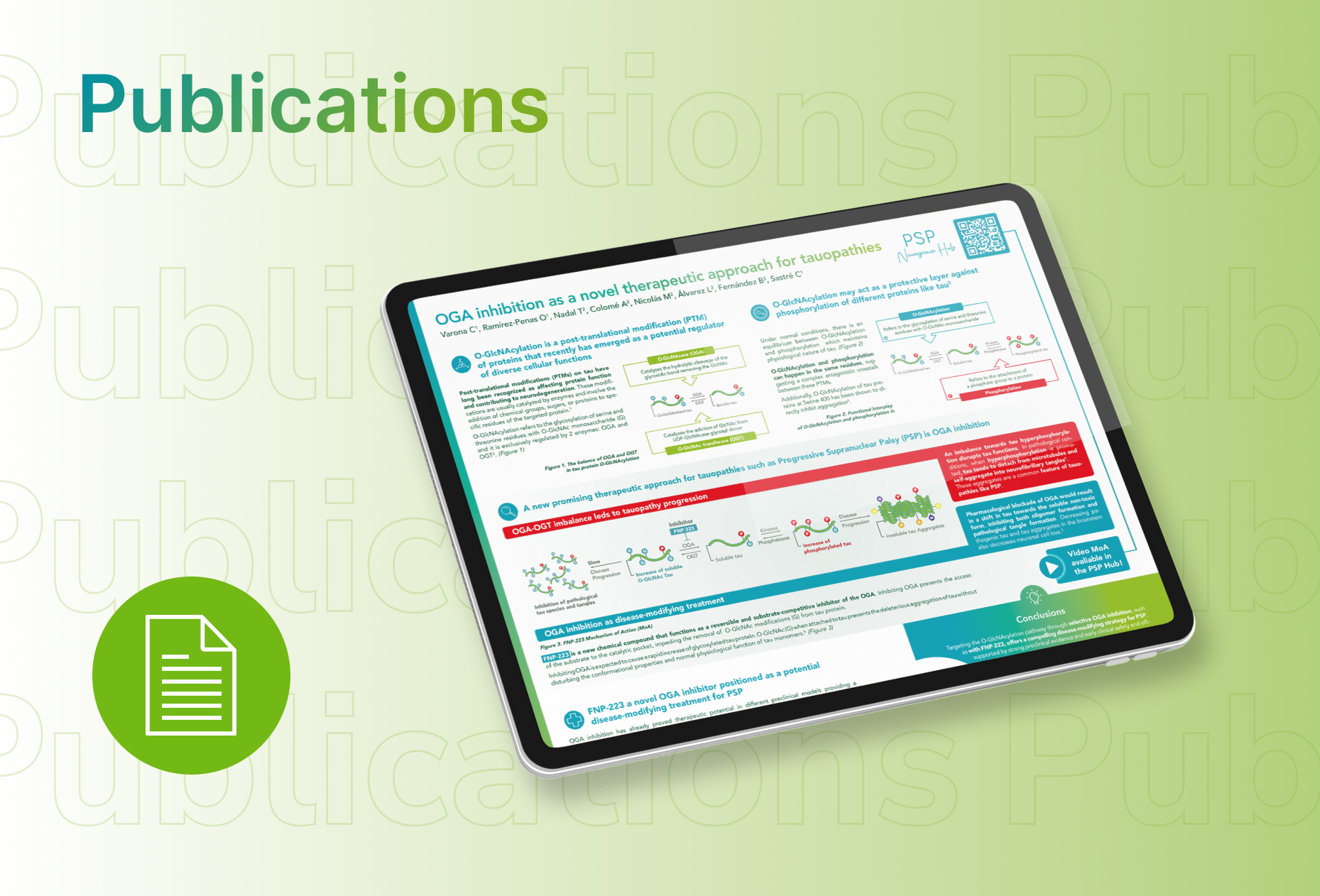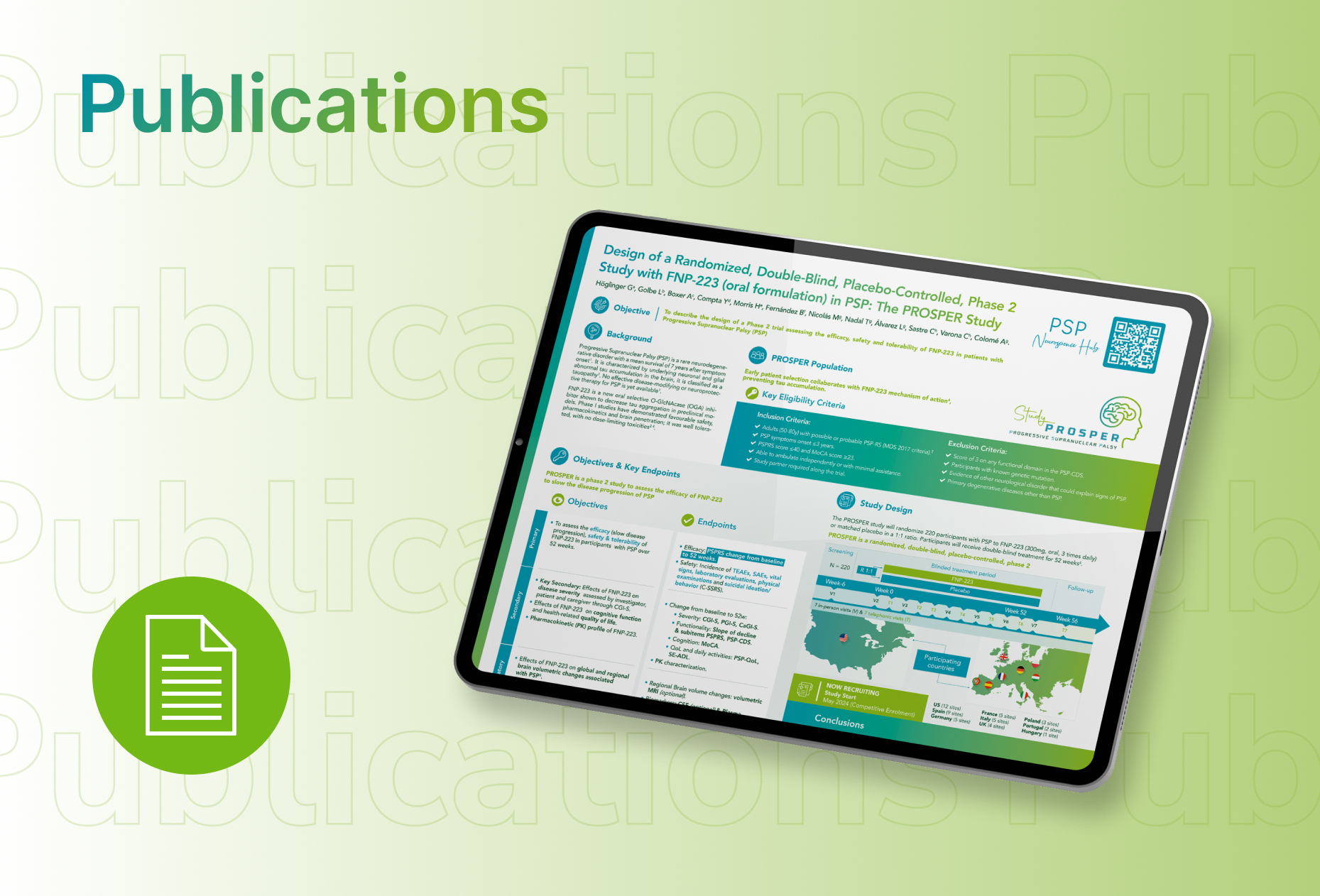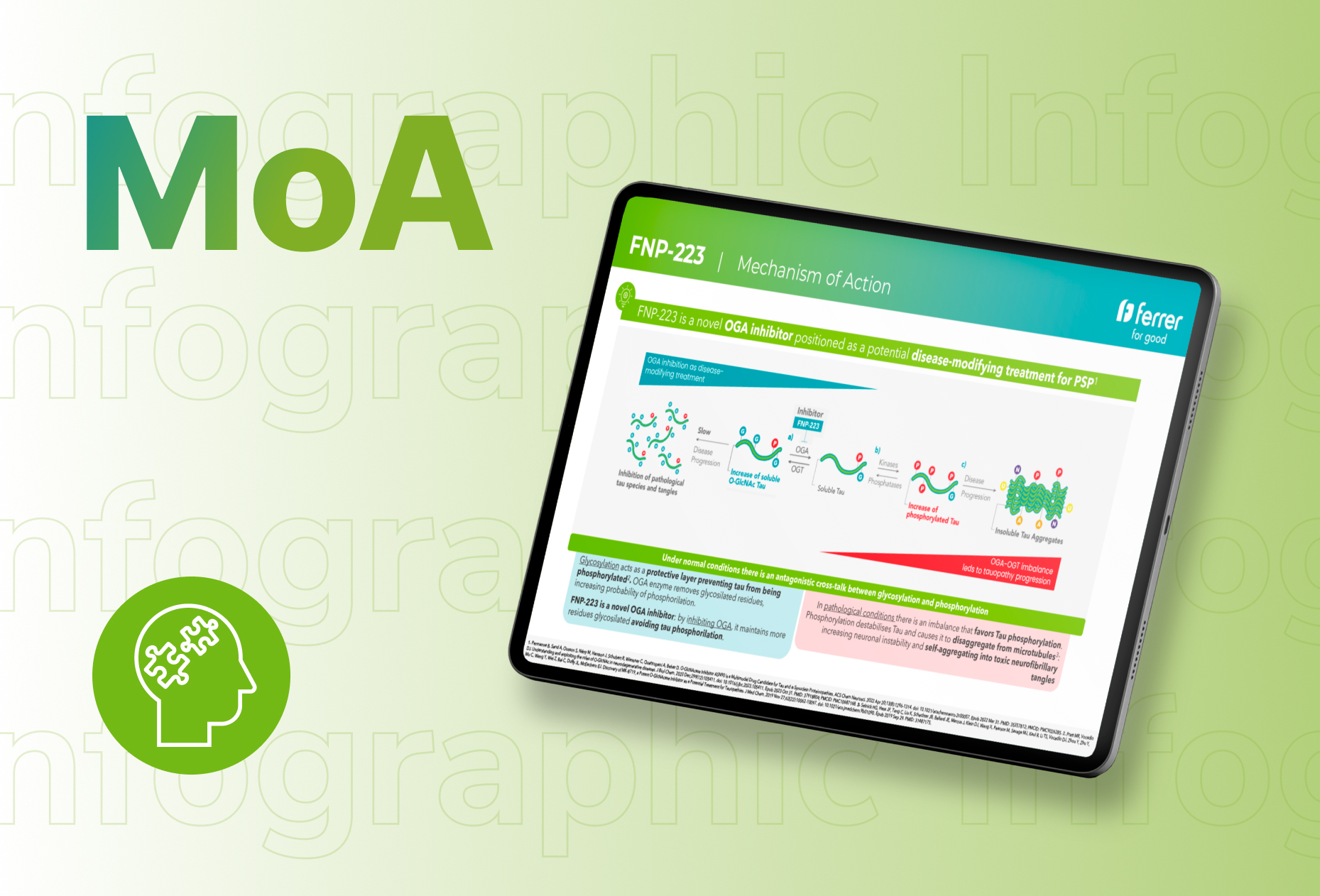Published content in this website is for information purposes and is intended for healthcare professionals only.
Medical Education
Play this short video to delve deeper into the pathophysiology of PSP and the mechanism of action of FNP-223.
Available in English & Spanish!
Remember to click the “full screen” button for a better experience.
ENGLISH
SPANISH
Learn about the FNP-223 mechanism of action(MoA) in a schematic and visual way.

Discover how targeting the O-GlcNAcylation pathway through selective OGA inhibition (FNP-223), offers a compelling disease-modifying strategy for PSP.
The publications contained in this section are subject to congress copyright permissions.
Clinical Trials & Publications

Navigate through the trial website to learn more about the eligibility criteria, endpoints and sites around US, UK and Europe.

Read more about the PROSPER study protocol design.
The publications contained in this section are subject to congress copyright permissions.
Congresses & Events
AD/PD 2025
Learn more about the therapeutic potential of OGA inhibition as a treatment for progressive supranuclear palsy and the FNP-223 development program!
Patient-Focused Initiatives
Stay Informed About Patient-Led Efforts in PSP Awareness, Care and Research
Explore resources and activities spearheaded by patient associations to foster early diagnosis, disease understanding, and drive progress in research. These initiatives provide healthcare professionals with insights into how patients and caregivers are being supported, enabling you to guide them effectively through every stage of their journey.
Navigating PSP - From Early Symptoms and Trials
Dr. Anne-Marie Wills discusses the early symptoms of PSP, its underlying physiology, and the importance of early diagnosis. She also explains how clinical trials work, the benefits of participating early in the disease, and how they can help advance PSP treatment.
Introduction to the PROSPER Trial
Dr. Günter Höglinger introduces the PROSPER Trial, a Phase 2 clinical trial for PSP. Learn about the investigational drug being tested, trial eligibility and design and how participation could help further PSP research and treatment development.



